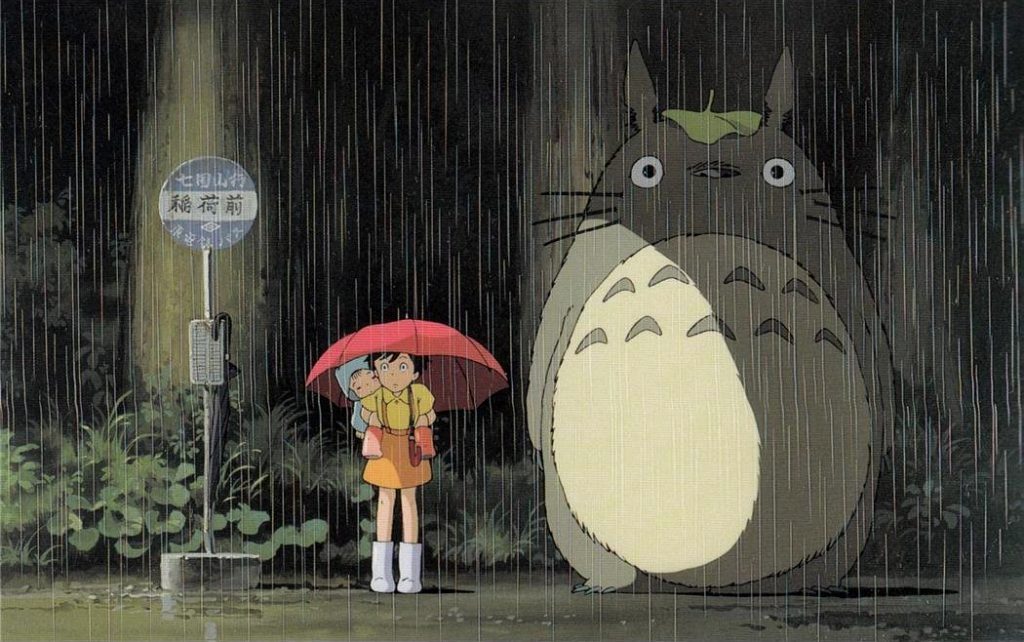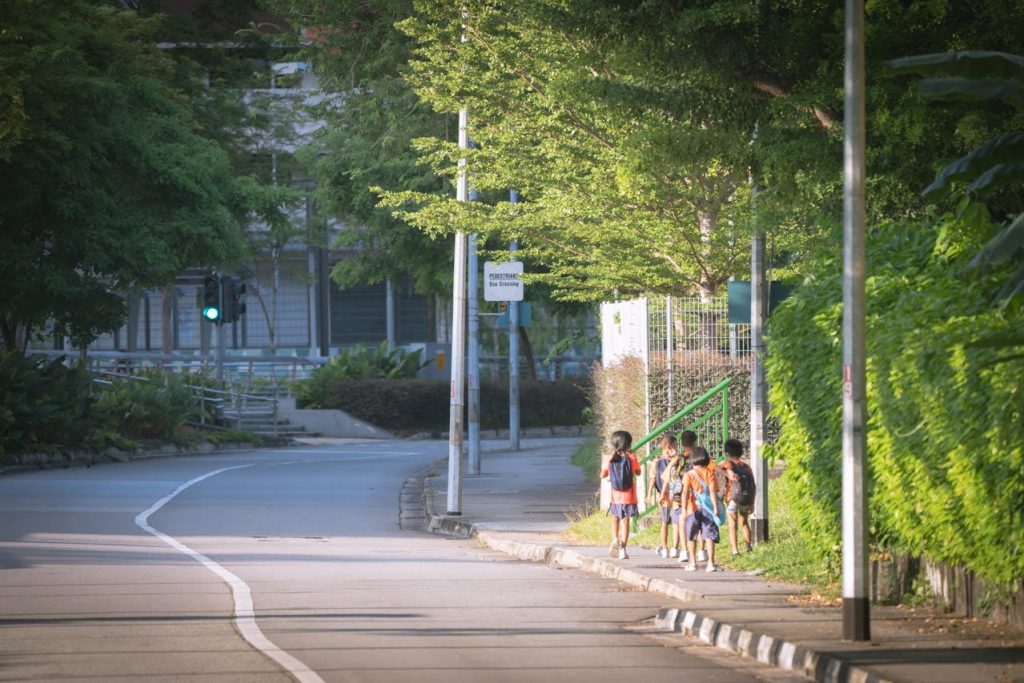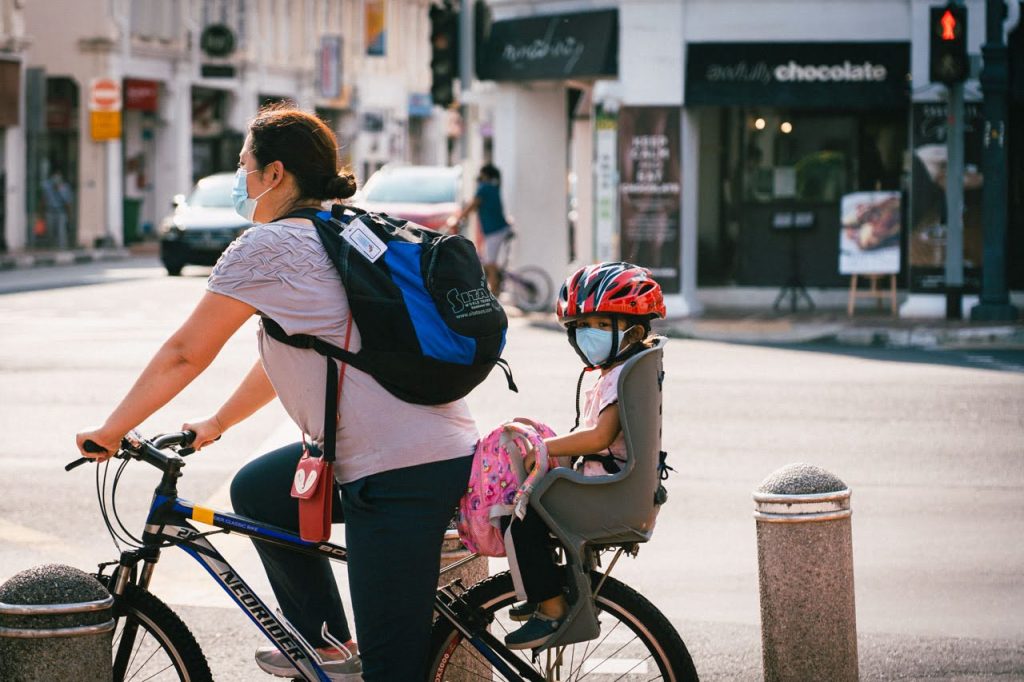Photography by Zachary Tang
Nothing bad ever happens at the end of Hayao Miyazaki’s My Neighbor Totoro (1988).
As the story goes: two children, Satsuki and Mei, move into an old house in the Japanese countryside with their father, so that the family can stay closer to the hospital where the girls’ mother, Yasuko, is being treated for a long-term illness. Like the children, we aren’t told just how serious the mother’s condition is—or whether she’ll recover at all.
For the majority of the animated film’s run-time, there’s no discernable plot. The viewer gets to explore the world through a child’s eyes, as Satsuki and Mei roam freely through rice paddies, chasing mysterious creatures into the forest. There, they stumble upon the eponymous Totoro, a part-animal, part-guardian-spirit that’s only visible to children.

At the end of the film—(spoiler alert)—the mother hints that her condition is improving, and that she looks forward to coming home soon.
By all accounts, this is a happy ending.
So why did rewatching the film in a pandemic year feel so gut-wrenching and sad?
In 2021, seeing Studio Ghibli’s beautiful hand-drawn landscapes evoked a feeling of loss and nostalgia, and an aching pain in my chest for a natural world that’s fast disappearing.
This is no coincidence. Themes of environmentalism and the loss of innocence have long permeated Hayao Miyazaki’s works—from Princess Mononoke to Spirited Away. The ailing mother in Totoro could easily be seen as a metaphor for nature—in poor health, its future uncertain. In August, the latest IPCC report published on climate change all but confirms that humanity is past the point where it can avoid catastrophe. Given this context, it’s hard not to feel like happy endings only exist in the realm of fantasy.
Perhaps this is why Singaporeans have become strangely obsessed with nature this year. The freedom of the mandarin duck and wild otter holds special significance at a time when our own movements are so heavily restricted. Houseplants and community gardens have become much-needed escapes from the pressurised environment of Singapore, where the cult productivity and achievement have defined much of our value as human beings.
This is a global phenomenon. Around the world, people are rediscovering the joys of slowing down and leading a simpler life. The new generation of Chinese are choosing to ‘lie flat.’ The New York Times is publishing op-eds about birds on balconies.
All of it leads back to a single question:
What if our celebrations of the natural world are actually manifestations of grief?
A Millennial Revisits the Decision to Have Children
As my wife and I approach our mid-thirties, the ticking of our biological clocks have become almost impossible to ignore.
In thinking through our decision of whether to have children, there are a host of factors we considered. How much of our freedom are we willing to give up? Are we sure that we’ll be good parents? How do we ever know when we’re ‘ready’ to take care of another human being?
Beyond this, there are also economic considerations.
There is the argument, of course, that having a child is expensive. Though that in itself is not entirely true.
A child can be expensive. And yet each year, millions of people manage to raise well-adjusted children on far less than the figures that are being thrown around.
Perhaps what we really mean when we say that a child is expensive, is that our expectations of what constitutes a ‘good life’ has ballooned to unreasonable proportions.
As parents, it’s natural to want our children to have more opportunities than we had—to lead better lives. But in an already prosperous and developed nation like Singapore, this invariably means more education, which in turn, puts more pressure on the child to ‘achieve,’ in order to justify the higher parental investment.
Ultimately, the end result is more consumption.
This is the point where the economic meets the existential. Because it’s precisely this mentality of ‘more’ that has gotten us into the current climate crisis to begin with, making the planet our children are set to inherit worse off.
Future generations will now have to contend with more severe weather, environmental disasters, disrupted food chains, plant/animal extinctions, new virus outbreaks, and rising water levels that will likely displace hundreds of millions.
Knowing everything we know today, some in my generation have concluded that not having kids is the more ethical choice.
After all, why should we burden future generations with the consequences of our mistakes?

Instability complicates the situation even more
As the next generation set to become parents, Millennials, have been conditioned by the times we grew up in. Our attitudes towards the world, and the future, are coloured by the shared experiences we’ve lived through.
In fact, almost every economic study shows that Millennials are the unluckiest generation in history (so far), as the average Millennial has lower earnings, less accumulated wealth than previous generations, leading to delayed milestones such as family formation and home ownership.
And just when we were starting to get our lives back on track, the Covid pandemic hit. Jobs were lost, BTOs were delayed, the price of HDB resales skyrocketed. While everyone else has been affected by this pandemic in their own way, the life-long instability experienced by the Millennial has only complicated the decision to have children.

In an article published in The Atlantic, Megan Garber writes,
“Paradigm shifts arise when what is known fails to accommodate what is learned. They are easy to talk about, but they can be wrenching to live through. Those who are alive today are caught in the midst of another revolution of ideas. This one is particularly painful, though: It is founded on an insight not about how the world works, but about how it might stop working.”
In this period of unprecedented change, it’s only natural to be hesitant about bringing life into the world. But I wonder if we, as Millennials, may be standing too close to the elephant. The analogy here being that by not taking a step back, we can’t see the bigger picture.
Having ‘grown up’ amidst the disintegration of the old economy, maybe our notions of what’s possible have already become too narrow, our ideas of progress too plodding. In our cynicism, we assume that valuable lessons have not been learned. That we can’t do a better job of passing down those painful lessons to the next generation.
After all, innovation is often discounted right up until the moment when it becomes ubiquitous.
What if the disorientation we’re feeling today signals not the end, but a new beginning?
Will Having Children Make Us Less Cynical About the Future?

Despite the monumental importance of their work, scientists often make for terrible storytellers—at a time when the stories we tell ourselves could make all the difference.
The recent iteration of the IPCC report on climate change, for instance, makes for tedious reading—despondent as it may be. Perhaps we should look at its grim conclusions not as an argument against procreation, but rather as an exercise in intentionality and, most importantly, as a useful playbook on how we should parent differently for the purposes of healing a fractured world.
In the penultimate scene from My Neighbor Totoro, Satsuki and Mei plant seeds in the garden outside their home. One night, the children discover that the Totoros are out in the garden, performing a magical dance to help the seeds grow. Delighted, they join in, and soon, a giant camphor tree explodes up from the garden, engulfing the moonlit sky.
The next morning, the girls wake up only to realise that last night had been a dream. The giant tree is gone, but seeds have sprouted in their garden.
Instead of feeling disappointed, the children celebrate their good fortune.
Maybe the children have got it right. At the end of the day, the decision to have a child is a matter of perspective.
Bringing life into a burning world may be an exercise in magical thinking, but it could also give us a more direct stake in the future. Already, my wife and I are talking about ways we could raise our child differently, by focusing more on their well-being instead of outcomes, and fostering a greater respect and awareness for the natural world.
Like Miyazaki’s films, growing up is bittersweet, but in imagining a better world for our children, we just might give ourselves a chance at a happier ending.
Tell us what you thought of this piece at community@ricemedia.co. If you haven’t already, follow RICE on Instagram, Spotify, Facebook and Telegram.






